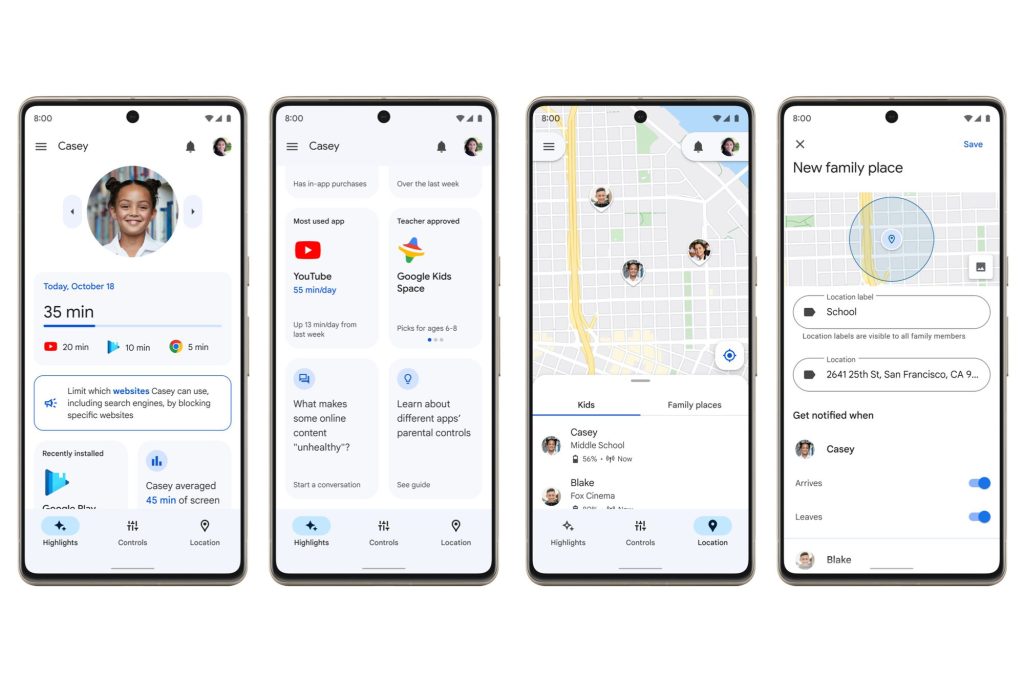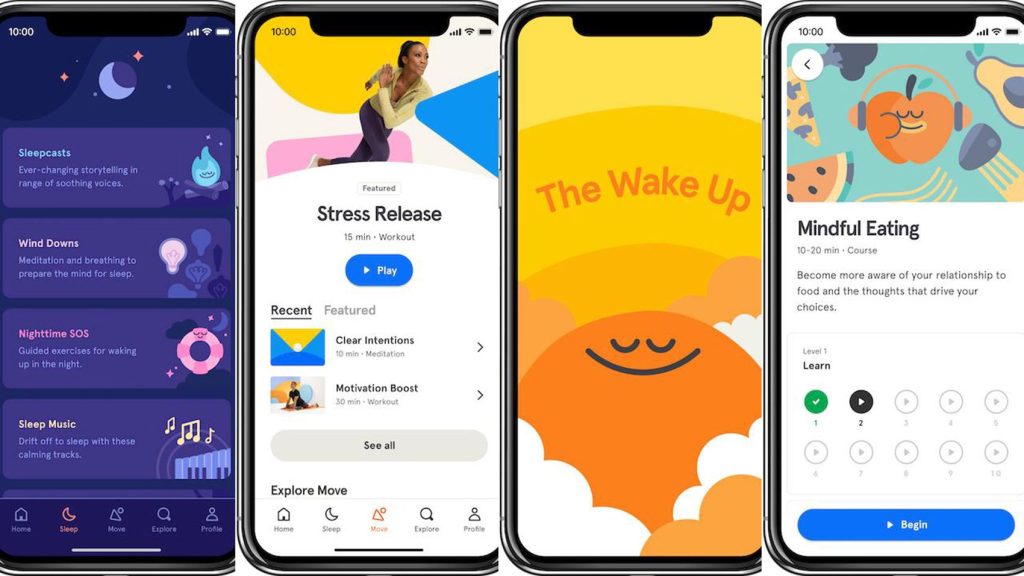Raising kids today is not like in the 90s anymore. Not long ago, parents learned how to parent from their family’s advice handed down over many years. But in today’s world, being a parent is changing a lot because new technology is becoming a big part of our daily lives.
Technology is reshaping the way we work, communicate, and entertain ourselves. It has also significantly impacted the way we raise and parent our children. As parents, we find ourselves navigating uncharted territory, balancing the benefits and challenges of technology in our children’s lives.
Let’s take a look at how the new technology is shaping parenthood.
The Digital Generation
In contrast to previous generations, today’s children are emerging as digital natives. We mostly witness children sitting with smartphones or tablets on their tables and chairs, mastering the internet more than us.
They seem to effortlessly adapt to new gadgets and apps, often mastering them before they can tie their shoelaces. This familiarisation of new technology has favorable and unfavorable consequences for their growth and development.
Pros:
- Enhanced learning opportunities: The digital platforms offer educational apps and online resources to stimulate early learning and intellectual development. Children can explore interactive content that supplements their traditional education.
- Digital literacy: Growing up in a tech-savvy environment equips children with valuable digital skills indispensable in the contemporary world. They become adept at navigating digital interfaces, a crucial asset in today’s job market.
- Global connectivity: Technology facilitates global connectivity, enabling kids to forge connections with peers and cultures worldwide. This exposure fosters a broader perspective and a more profound understanding of diversity and inclusion.
- Creativity: Technology offers creative outlets like digital art and music, allowing kids to express themselves.
- Convenience: Tools like video calls make it easier for kids to stay connected with family and friends, even if they’re far away.
- Problem-solving: Video games can enhance problem-solving skills as kids tackle challenges and puzzles.

Cons:
- Screen time overload: The flip side of digital immersion is the potential for excessive screen time. Prolonged hours spent in front of screens can lead to sedentary lifestyles, contributing to health problems like obesity and sleep disturbances.
- Cybersecurity risks: Children are particularly susceptible to online threats such as cyberbullying, exposure to inappropriate content, and encounters with online predators. Protecting their digital well-being is a paramount concern.
- Social interaction challenges: Overreliance on technology can hinder the development of crucial face-to-face social skills. Kids may find engaging in meaningful, in-person interactions challenging when they are more accustomed to digital communication.
- Sleep Problems: Using screens before bedtime can disrupt sleep patterns, making it harder for kids to rest well.
- Less face-to-face time: Overuse of technology can reduce in-person interactions, which is essential for social skills.
- Ads and consumerism: Online ads and promotions can influence kids to want more things, sometimes leading to excessive consumerism.
- Misinformation: Not everything online is accurate; kids may have trouble discerning fact from fiction.
The Role of New Technology in Education
Today, technology has changed how kids learn, and parents play a significant role. The way children are taught now, often online or remotely, means parents need to help them in new ways.
Kids usually get new technology quickly, but parents sometimes find it hard. They might have to fix problems with online learning apps or tools. Finding the right balance between their work and helping their children with online schoolwork can be challenging. Kids spending a lot of time in front of screens can make them tired and distracted, which is something parents need to watch out for.
However, despite these challenges, using new technology for education has many pluses. One big plus is that tech can make learning personal. It can adjust to how fast or slow a child learns and what they need to work on. Plus, the internet is full of tools and resources that can make learning more exciting. Parents can use these to help their children learn more and enjoy it.
Tech also offers flexibility. Parents can work with their children’s schedules, helping them when it works best for both. So, while new technology brings new challenges, it also opens up exciting possibilities for parents and children in the world of education. It’s all about finding the right balance.

6 Types of New Technology That Parents Can Adopt
Parents can access various new technological tools to support their children’s growth and well-being. Let’s explore six types of new technology that parents can embrace to enrich their child’s learning journey, promote safety, and encourage healthy habits.
- Parental control applications and software
Parental control apps and software options are designed to assist parents in effectively managing their child’s digital activities. Apps such as Norton Family, Net Nanny, and Qustodio offer parents insights into their children’s online interactions, allowing them to set screen time limits, monitor web activity, and ensure a safe digital environment.
- Educational applications and online learning platforms
Educational apps and online learning platforms have become invaluable resources for parents. These digital tools, such as Duolingo, Khan Academy, and ABCmouse, enable parents to supplement their children’s education with engaging and interactive lessons tailored to their unique needs and interests.
- Digital books and e-readers
E-books and e-readers, exemplified by devices like Kindle, open up a world of reading possibilities. Parents can encourage their children to explore digital books, leveraging features like adjustable fonts and built-in dictionaries for an enhanced reading experience.
- Virtual reality (VR) and augmented reality (AR) tools
VR and AR devices and applications offer immersive experiences that can ignite curiosity and enhance learning. Parents can introduce educational VR apps or utilize AR apps to make subjects come alive, making learning an engaging adventure.
- Internet safety tools
Parents can use internet safety tools, including antivirus software, firewalls, and ad-blockers to ensure their child’s online safety. These tools shield against online threats, creating a secure digital environment and safeguarding children from potentially harmful content.
- Wearable health technology
Like fitness trackers, wearable health tech motivates kids to embrace active lifestyles. Parents can set health goals and challenges using these devices, inspiring their children to stay physically active and maintain healthy routines.

10 New Technology Apps for Parents and Children
In our modern age, technology is deeply intertwined with our daily lives, influencing how we raise and educate our children. This section will explore ten helpful apps for parents and their children. These apps are valuable tools that support families in learning, communication, and enjoyment, all within our fast-paced world.
- Family Link by Google
Family Link, a Google-developed parental control app, empowers parents to create child Google accounts, establish screen time restrictions, and remotely supervise app usage and internet activities.
It enables the management of a child’s online experience, ensuring safety and age-appropriate content. Children can explore the digital realm with their parents’ guidance and preset safety measures.
- Epic!
Epic is a digital library tailored for kids under 12, offering access to a vast collection of e-books, audiobooks, and educational videos.
Parents can foster a love for reading and learning by providing a rich library of age-appropriate content. Meanwhile, children can enjoy reading diverse books and enhance their reading skills through interactive features.
- Khan Academy Kids
Khan Academy Kids is another excellent app. It’s like having a whole school on your phone or tablet, and it’s perfect for kids aged 2 to 8. You can learn about math, reading, and emotions and get creative! Parents can watch how well their little learners do, and kids can have fun with lessons and games.
- ChoreMonster
Need some help with chores? ChoreMonster is here for families. Parents can use it to create lists of chores and tasks for the kids, such as finishing their homework, having healthy snacks, or cleaning their room. When they finish, they get cool rewards. It’s a clever way to teach responsibility; kids can keep track of their chores and collect rewards.
- Headspace
Headspace, a meditation and mindfulness app suitable for adults and children, offers guided meditation sessions and sleep-inducing stories.
Parents can utilize Headspace to reduce stress, enhance their mental well-being, and introduce mindfulness practices to their children. Children can access age-appropriate meditation and relaxation content to develop emotional regulation skills.

- Fitbit Family Faceoff
Fitbit Family Faceoff is all about having fun while staying active. Parents can set up fun challenges for the family, encouraging everyone to get moving. Kids can join in the contests with their parents and siblings, making exercise exciting and bringing the family closer together.
- PBS Kids Games
PBS Kids Games provides various educational games and activities based on popular PBS Kids shows. Parents can facilitate their children’s learning by offering access to educational games aligned with PBS content. On the other hand, children can engage in fun, educational experiences that reinforce lessons from their favorite TV shows.
- Todoist
Todoist is a super handy app for parents. It helps you organize your day, plan activities, and keep track of important stuff. It’s like having a personal assistant right on your phone. Kids can also benefit from a well-organized family schedule.
- Artful Parent
Artful Parent offers children creative arts and crafts ideas, fostering their artistic skills and imagination. Parents can bond with their kids over cool art projects that boost their creativity. Kids can let their imaginations run wild and express themselves through art.
- Yummly
And if you love cooking, Yummly is a tasty treat. Parents can discover loads of yummy recipes that the whole family will enjoy. Kids can join in the kitchen fun and explore different flavors and cuisines.
Let’s Embrace New Technology With Our Kids
Different parents have different parenting styles, but one thing is shared among them, i.e., figuring out the right way to go through the age of new technology. As parents, we are responsible for guiding our children in navigating the digital landscape safely and responsibly.
By staying informed, fostering open communication, and setting healthy boundaries, we can harness the benefits of technology while preserving the essence of childhood and family life.
The key is to strike a balance that allows our children to thrive in the digital world while cherishing the timeless values that make them well-rounded individuals.





